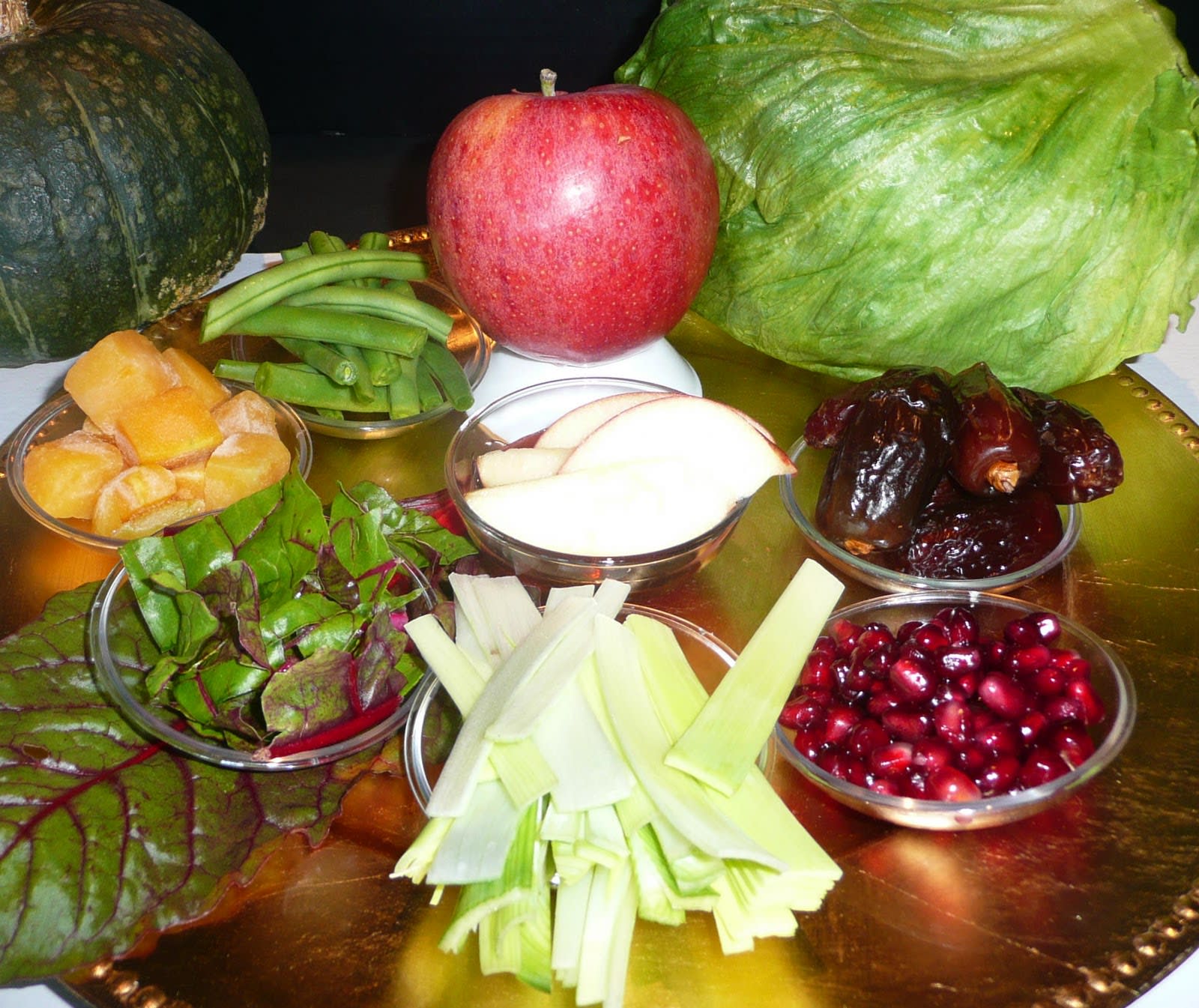
Symbolic Foods and Why We Eat Them, With Recipes
As Rosh Hashana approaches, the preparations begin. And at my home, that’s an understatement. Getting clothes in order, setting up the seating chart at the synagogue, taking haircuts, you name it! All of these things must be done. And of course, I’m thinking through my menus for the holidays. Naturally, food for such festive meals should be both special, and appropriate to the occasion. But more than that, in a holiday so rich in meaning, it is my pleasure to imbue each dish on my table with the flavor of the Simanim, the symbols of our hopes and prayers for the New Year. At the Rosh Hashana meal we eat foods that are symbolic of our wishes for the coming year.
Most Rosh Hashanah Machzorim have a service for the Simanim, to be celebrated upon return from synagogue on the first night of the holiday. Various symbolic foods are eaten and a short prayer (a יהי רצון – Yehi Ratzon – May it be Your will) that alludes to the symbolism is recited. The Simanim(symbolic) foods vary from minhag to minhag (custom to custom). I have used the foods from the Balkan Ladino Jews of Greece, my husband’s minhag. For the Seder of the Simanim, it is important to use the foods in their most easily recognizable form, like the Lady Apple Cordials. However, eating plain pumpkin or leek is not really an option in our house, so we use the recipes here to make the Seder more enjoyable.
When our Simanim Seder is done, we always begin our meal with a special salad I make for us called a Simanim Salad where I bring together all the Simanim from the Seder. Many of the dishes I make for the Seder go on to become part of the meal, like the Lubiya and the leek patties. Some dishes that I make contain elements of the Simanim like the typical Rosh Hashanah dessert, Honey Cake. But however we do them, the most important thing about the Simanim is making our Yehi Ratzones wholeheartedly, deliciously and joyfully. L’shana tova U’metuka! Anyada Buena! A Sweet, Healthy and Happy New Year to you and yours.
© 2008 Debby Segura. Debby Segura holds an AB in Design from UCLA. She designs dinnerware and she teaches and writes about cooking. She lives in Los Angeles with her husband and children. Visit her at www.debbysegura.com
The words of this author reflect his/her own opinions and do not necessarily represent the official position of the Orthodox Union.

